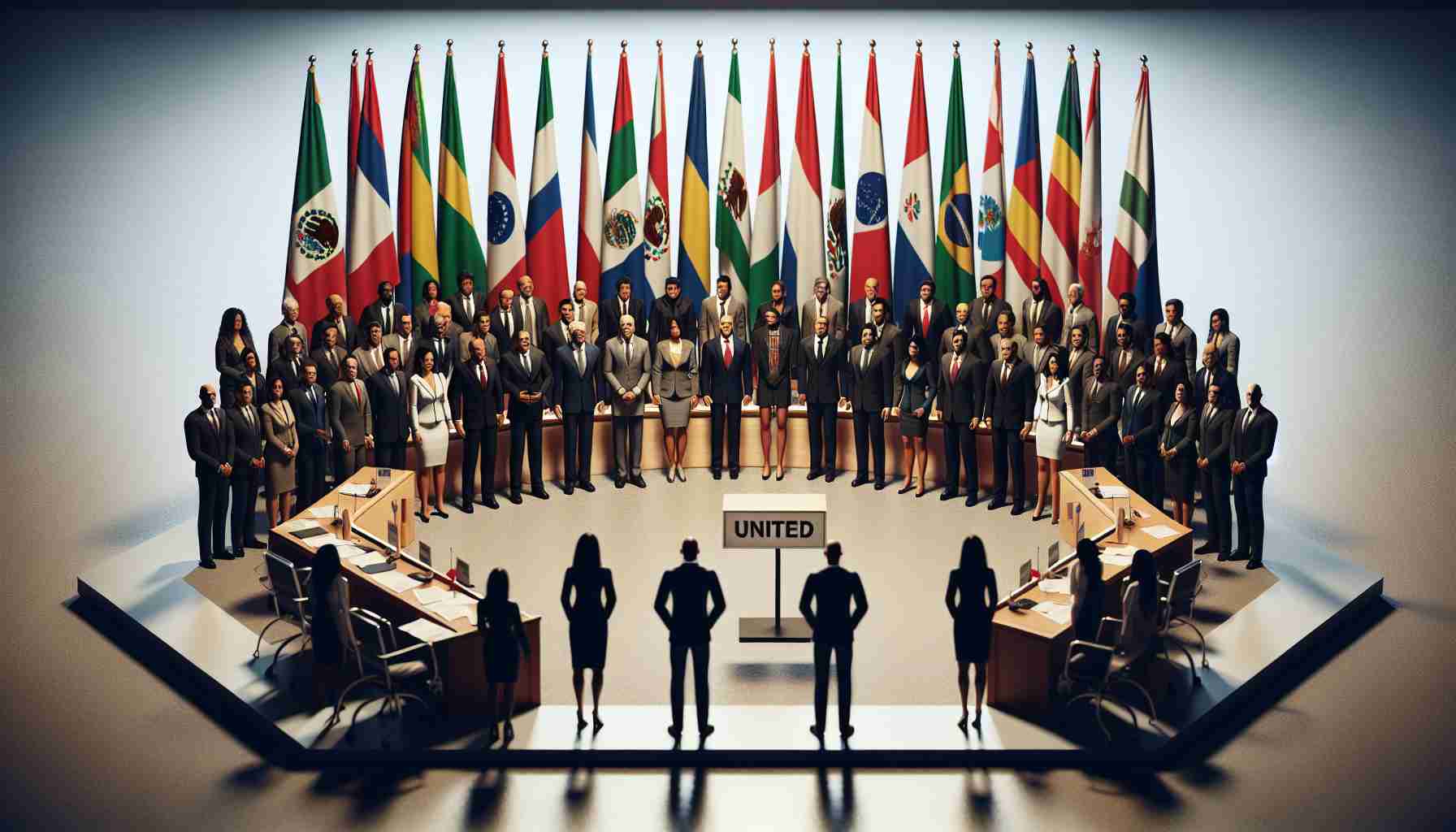A group of nine Latin American countries has publicly condemned a Venezuelan court’s arrest warrant for opposition leader Edmundo González Urrutia. Notable among them are Brazil and Colombia, reflecting a growing regional disapproval of the Venezuelan government’s actions. This arrest warrant has intensified the isolation faced by President Nicolás Maduro, who is experiencing diminishing support from neighboring nations and international organizations.
The nations opposing the warrant include Argentina, Costa Rica, Ecuador, Guatemala, Panama, Paraguay, Peru, the Dominican Republic, and Uruguay. They have expressed concerns over the erosion of fundamental rights in Venezuela, particularly regarding the harassment of opposition members. Both Brazil and Colombia highlighted their deep unease over the implications this judicial decision has for commitments made by the Venezuelan government in the Barbados Agreements, which aimed to bolster democracy and foster dialogue.
Argentina’s government has called out the regime for attempting to stifle the democratic struggle by targeting opposition leaders. The Paraguayan government has demanded assurances for González Urrutia’s safety and an end to political persecution, while Ecuador voiced its concerns about political oppression and the violation of due process rights.
In a broader context, prominent figures from the European Union and the United Nations have urged the Venezuelan government to respect human rights and freedom. The opposition, rallying under the Democratic Unitary Platform, proclaimed that the arrest attempt undermines the will of over eight million voters who supported González Urrutia.
Latin American Nations Unite Against Venezuelan Arrest Warrant: A Regional Stand for Democracy
In a significant show of solidarity, nine Latin American countries have united in opposition to a contentious arrest warrant issued against Edmundo González Urrutia, a prominent Venezuelan opposition leader. This development underscores not only regional grievances against the Venezuelan regime but also amplifies the call for democratic principles and human rights throughout the continent.
Key Questions Addressed:
1. What prompted the collective opposition from these nations?
The arrest warrant for González Urrutia has reignited fears of escalating political repression in Venezuela. These nations, recognizing the threat this poses to democracy, collectively condemned the warrant as a means to silence dissent and undermine political opposition.
2. How might this unity impact Venezuela’s international standing?
The disapproval from regional powers like Brazil and Colombia could further isolate the Maduro administration diplomatically and economically. It may compel other nations to reconsider their stances on Venezuela and may influence multilateral discussions, favoring sanctions or stronger resolutions against the Maduro government.
3. What are the challenges these nations face in their response?
The challenge lies in balancing diplomatic relations with Venezuela while advocating for human rights. Some nations still maintain economic ties with Venezuela, and any aggressive stance may threaten those alliances. Additionally, these nations must navigate their internal political landscapes, which can vary significantly.
Challenges and Controversies:
– Political divisions within and among nations: Countries in Latin America have differing political alignments and policies regarding Venezuela, which may lead to inconsistent responses to the crisis.
– Fear of retaliation from Venezuela: Nations supporting González Urrutia fear potential adverse repercussions, such as economic sanctions or diplomatic rifts.
– Effectiveness of international interventions: While regional unity is vital, the efficacy of soft power measures—such as diplomatic pressure—versus more hardline approaches remains contentious.
Advantages and Disadvantages of Collective Action:
– Advantages:
– Strengthened diplomatic leverage: A unified front enhances bargaining power in international forums like the Organization of American States (OAS) and the United Nations.
– Moral authority: By opposing the arrest warrant, these nations position themselves as defenders of democracy and human rights, which may resonate positively with their citizens and the international community.
– Disadvantages:
– Risk of escalation: A consolidated opposition might provoke a harsher crackdown from the Venezuelan government, potentially leading to increased violence against opposition figures.
– Complex regional dynamics: Alliances may shift as countries reassess their positions based on domestic political pressures or economic interests linked to Venezuela.
A Broader Context and Implications:
This incident transcends national boundaries, highlighting a regional commitment to uphold democratic values. Apart from Latin American nations, advocacy for human rights has echoed through international bodies, including calls from the EU and United Nations, emphasizing a dossier on the importance of respecting due process and maintaining political freedoms.
Advocacy and Support:
The political landscape in Latin America is volatile, and these developments may impact future governance models and electoral engagement. Supporting a united stance against human rights violations in Venezuela could catalyze similar movements in various countries grappling with authoritarianism.
For more information and updates on this evolving situation, follow related links: BBC News, Reuters, Al Jazeera.










